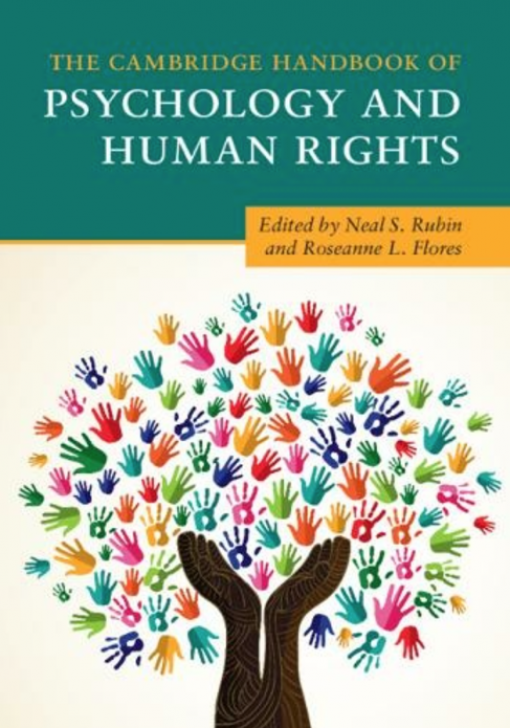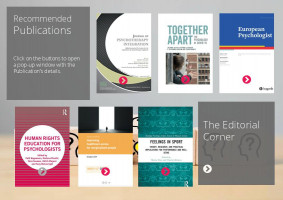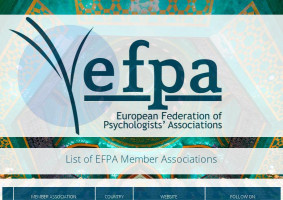Recommendations for Policy and Practice of Telepsychotherapy and E-Mental Health in Europe and Beyond
Delivery of psychotherapy has rapidly changed as a function of physical distancing recommendations by the World Health Organization that aim to slow transmission of COVID-19 during a global pandemic. A consequent need for rapid infusion of psychological science into care delivered via telepsychotherapy has emerged. As an international journal with global reach, the Journal of Psychotherapy Integration (JPI) has responded to this need with an expanded special issue devoted entirely to the topic of telepsychotherapy in the age of COVID-19.
Starting from the premise that an effective response to the pandemic depends upon people coming together and supporting each other as members of a common community, the aim of this book is to use social identity theorising to provide a comprehensive and integrated analysis of the psychology of COVID-19.
Read more bout this book on the "Editorial Corner" bloc of the July news magazine

Volume 25, no. 3 is now available online
Special Issue: Psychology and Aging: European Perspectives
Highlights:
Psychology and Aging: European Perspectives
Prospective Memory Development Across the Lifespan - An Integrative Framework
Sleep Quality and Daytime Functioning in Older European Adults
This ground-breaking book is designed to raise awareness of human rights implications in psychology, and provide knowledge and tools enabling psychologists to put a human rights perspective into practice.
Psychologists have always been deeply engaged in alleviating the harmful consequences human rights violations have on individuals. However, despite the fundamental role that human rights play for professional psychology and psychologists, human rights education is underdeveloped in psychologists’ academic and vocational training.
This book, the first of its kind, looks to change this, by:
raising awareness among professional psychologists, university teachers and psychology students about their role as human rights promoters and protectors
providing knowledge and tools enabling them to put a human rights perspective into practice
providing texts and methods for teaching human rights.
Featuring chapters from leading scholars in the field, spanning 18 countries and six continents, the book identifies how psychologists can ensure they are practising in a responsible way, as well as contributing to wider society with a clear knowledge of human rights issues in relation to culture, gender, organisations and more.
Joint Statement: Improving the healthcare access for marginalised people
The Nobody Left Outside (NLO) initiative is a collective of organisations representing people in some of the most marginalised communities in Europe, who are underserved with respect to healthcare. These communities include homeless people, LGTBI people, people who use drugs, prisoners, sex workers and undocumented migrants.
People in these communities are at a significantly higher risk of poor health than the general population and are often in highly vulnerable situations. At the same time, they face significant challenges in accessing healthcare owing to a complex range of barriers, coupled with discrimination and stigma. As a result, many people most at need of healthcare are among the least likely to receive it. In effect, they are left outside healthcare systems.
The NLO initiative provides a European-level platform for organisations to collaborate to identify shared challenges, exchange lessons and good practice, seek innovative solutions, and speak with a unified voice to offer guidance to improve healthcare access for the communities of people they represent – on the basis that nobody should be left outside.
Feelings in Sport
Theory, Research, and Practical Implications for Performance and Well-being
By Montse C. Ruiz, Claudio Robazza
1st Edition
The Editorial Corner
Earlier this year a book I co-edited was published on Human Rights Education for Psychologists and you can find details of this in the July edtion of the News Magazine. Hard on its heels comes this excellent book, with 40 chapters written by over 100 contributors. Their fields of study include psychology, history and law among others. It reinforces my own view that psychological science and human rights have a natural fit and together provide a framework for human thriving. As they say on the publisher’s website the book:
- Describes the significant developments of psychology in advancing human rights at the United Nations
- Includes key historical figures in psychology and human rights
- Explains human rights instruments to shed light on the human rights system
- Links psychological science with understanding the behavioral dimensions of human rights challenges
- Shows how to translate psychological science into an optimistic endeavor to address emerging global issues
A particular strength for me in the book are the chapters discussing the 2030 Global Agenda on Sustainable Development. These are under considerable pressure with the emergence of populist movements and governements, together with the impact of the Pandemic. In the British Psychological Society we have set up a new Steering Group on Psychology and Human Rights in response to these challenges and will be one of four member associations within the EFPA with such groups (Norway, The Netherlands and Croatia being the others). I urge you to recommend this to your libraries, to read it and disseminate it, and for those member associations thinking of setting up groups to explore psychology and human rights, this book and the one I co-edited are good starting points. Very highly recommended indeed.
_w544_h554_1.png)














